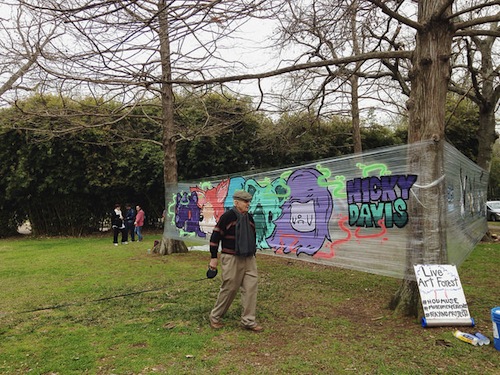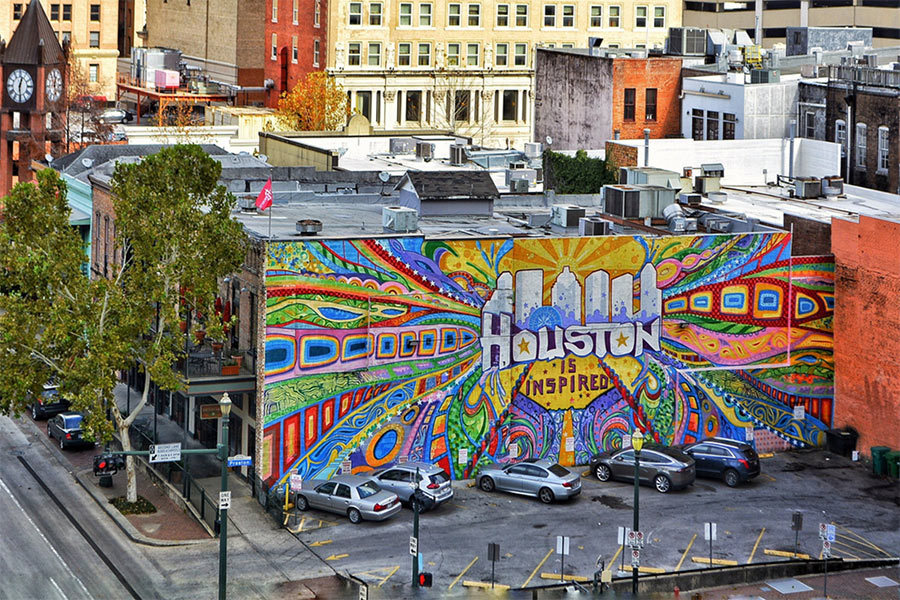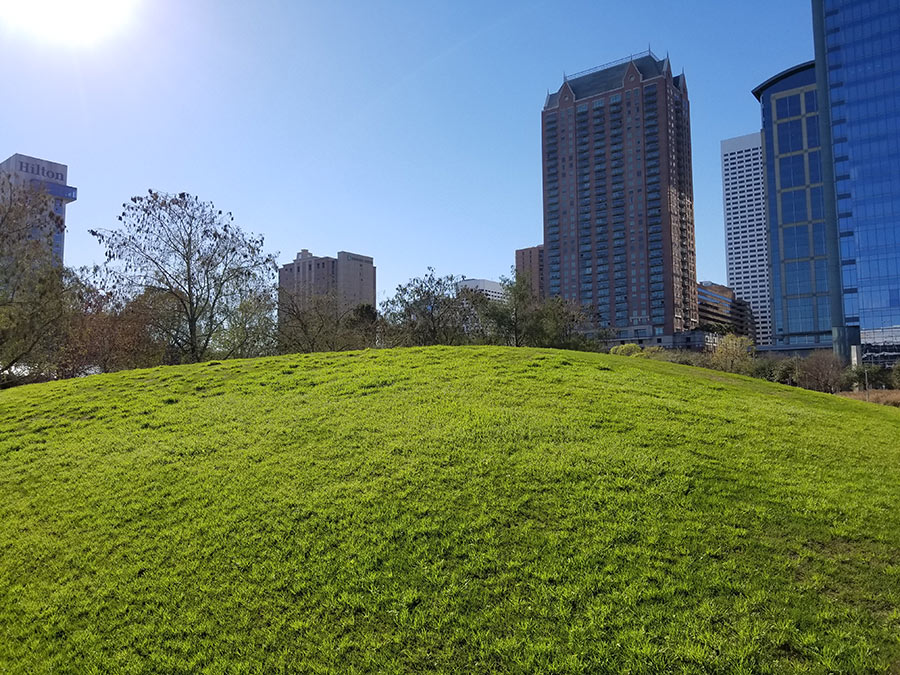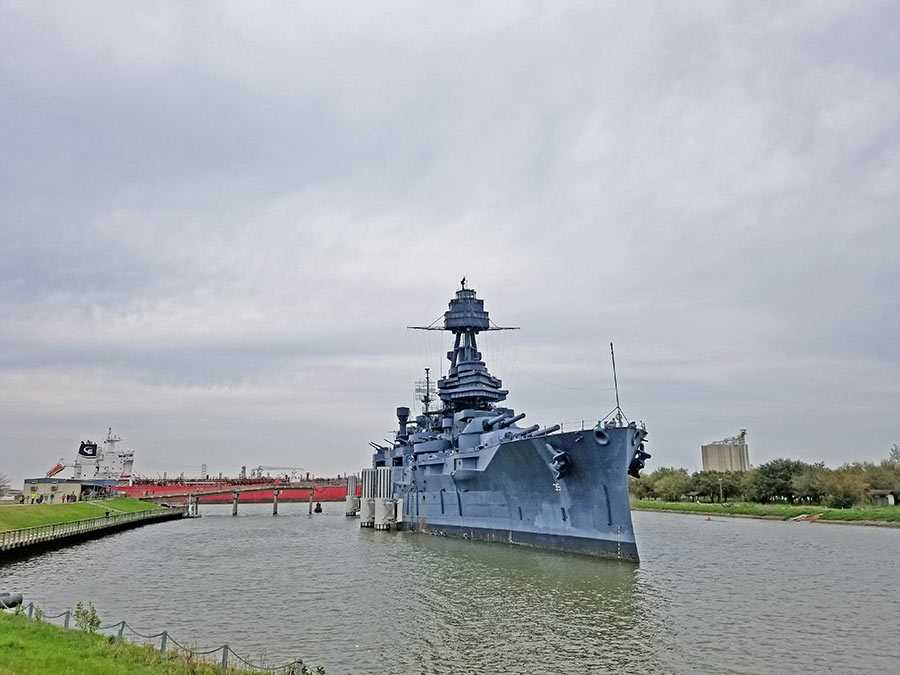
- Howard Hughes Corp. Planning Residential Tower with a ‘European Sensibility’ Along The Woodlands Waterway Next to New Hotel [Prime Property]
- HealthHelp Leasing 2 Floors of Former ExxonMobil Space in Four Greenspoint Place [Prime Property]
- New Jersey-Based Meat Distributor D’Artagnan Signs Lease for Warehouse Near I-45 and 249Â at 416 Blue Bell Rd., with Option To Buy [Houston Business Journal]
- H-E-B Opening New Tanglewood Store with Wall of Live Plants, Casual Restaurant on Feb. 18 [Houston Business Journal; more here; previously on Swamplot]
- Pub Fiction Guys Moving into Downtown with The Moonshiners at 1000 Prairie St. [Eater Houston]
- B&B Signage Goes Up for Benjamin Berg’s B & R Butchers at 1814 Washington Ave [Eater Houston; previously on Swamplot]
- Majority of Houston Households are Renters, Despite Low Vacancy Rates and Rising Rents, Finds New Report [Prime Property]
- Meet Michele Marano, Real Estate Agent to the Energy Industry [Houstonia]
- Opposition to High-Speed Rail Line from Dallas to Houston Gets Organized at NoTexasCentral.com [Off the Kuff]
- Lamar Bike Lane Has Reached ‘Record Levels of Facebook Enthusiasm,’ Says BikeHouston Executive Director [The Highwayman]
- Houston’s 5 Best Public Gardens [Houstonia]
Photo of Menil Park: Brandi Lynn via Swamplot Flickr Pool
Headlines





I wouldn’t worry too much about the possibility of the Dallas-Houston high speed rail in any foreseeable future. There’s no way in hell any private funding would make this happen. The land required to purchase, the construction, operation, and competition with regional air travel, the numbers simply don’t work. Also, all other similar projects around the country (Commiefornia specifically) have been nothing bu boondoggles. And if and when they inevitably ask for government funds, I can tell exactly where Texas voters will tell them to stick it.
A Houston to Dallas line will be an economic game changer.
–
Rural speed trap ticket revenues will decrease and there needs to be a way for farmers and ranchers to cross the tracks. Let’s accommodate people with legit concerns but let’s get this done.
–
As to eminent domain, the public has always had a right to travel through the country and this is how travel will be done. Hopefully they can minimize disruption to neighborhoods and existing structures
“Commiefornia”? Seriously?
This project sounds fun and exciting but should be instantly dead now and in the future since it will depend on a private company using eminent domain to take other’s property. A gas pipeline is questionable as there are few if no alternatives. This project will just be a company competing with the airlines. Taking private property in order to facilitate that would be outrageous.
Nikolas,
I think he is trying to make Notcommonsense’s Poe’ing job harder.
Yes. He is totally serious. The only thing non-communist to come out of California is Ronald Reagan, and as you know he balanced our federal budget with his stout fiscal conservatism, won the war on drugs, and didnt ever negotiate with our enemies. Thats how I remember him.
Kelo v. City of New London was a horrible decision and needs to be overturned.
I fail to understand why a high speed rail could not use the grassy median area of I -45–it seems it would only need to re-route in the densest parts of Dallas and Houston. Wouldn’t the cost of bridges over an overpass be better than buying up private land–a private company could lease the land from the State. Is this just too unfeasible?
@NotCommonsense, did Reagn win the war on drugs through the concerted efforts of the US government to flood our streets with crack cocaine in order to raise money to fund covert foreign wars…?
@JT I-45 is too hilly and curvy for a train that goes 200 mph. You would have to reengineer the entire corridor for the train to work there. Also, I-45 has much denser development further out of Houston than the 290 corridor.
Kelo allowed taking private land by another private group that wished to build an upscale development on the land. Taking a transportation right of way through farmland is entirely different. Only in rare cases of small parcels would an entire property be taken. Compensation has to be approved by local boards based on criteria in state law. If we didn’t allow transportation right of ways then there would be no way to travel through the state. Every major road in the state needed eminent domain to be built. Also, airports rely heavily on subsidies. IF the rail line can be built cost effectively and for a profit then it will not need handouts and then it should be seen as competition to the airlines to help the consumer. Keep in mind, airports regularly use eminent domain to expand so it isn’t as if airports don’t have this power also and the rail line is competing unfairly against the airport. The legal concept of a right of way is that people need access to things outside their own little plot of land whether it be a waterway or other way to get goods to market or travel between cities Legally, we all have to share the state we live in. I would hate to live somewhere that any selfish person can prevent efficient transportation between two major metros.